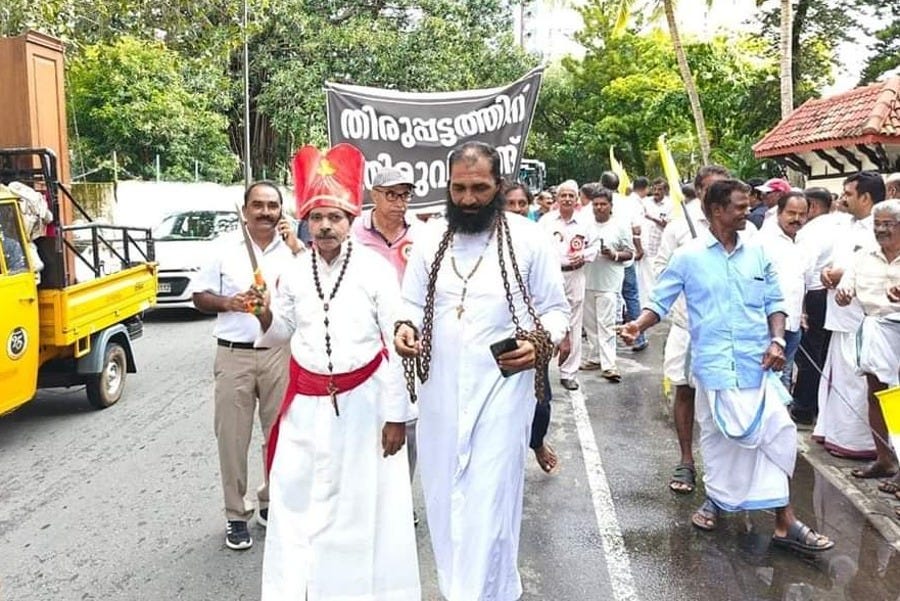Protesters march as Syro-Malabar truce unravels
Protesters sought to dramatize the tensions in their archeparchy with a pruning saw and chains.
Thousands of Catholics took to the streets in southern India Sunday as a tentative truce in the decades-long Syro-Malabar liturgy dispute continued to unravel.

